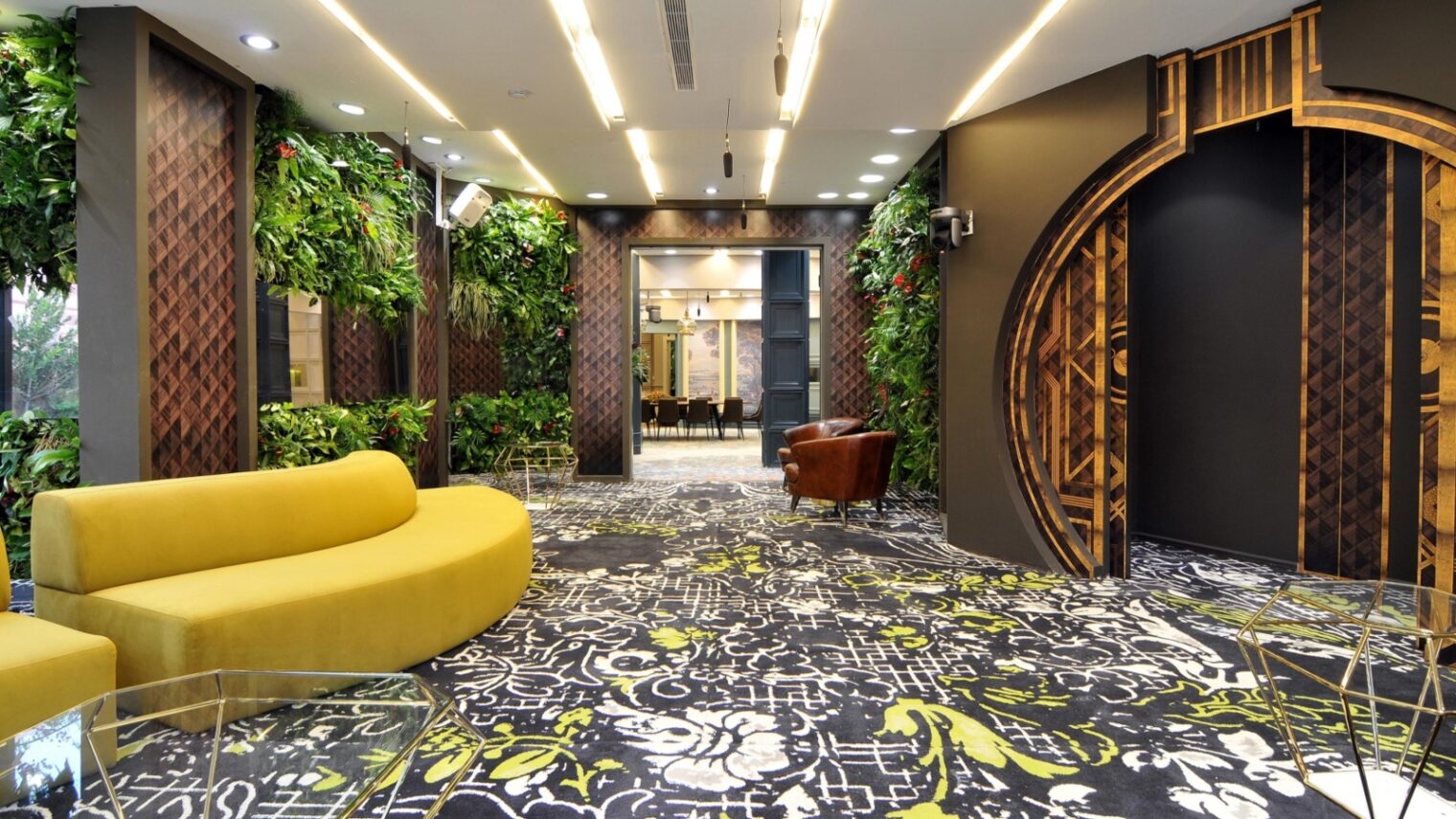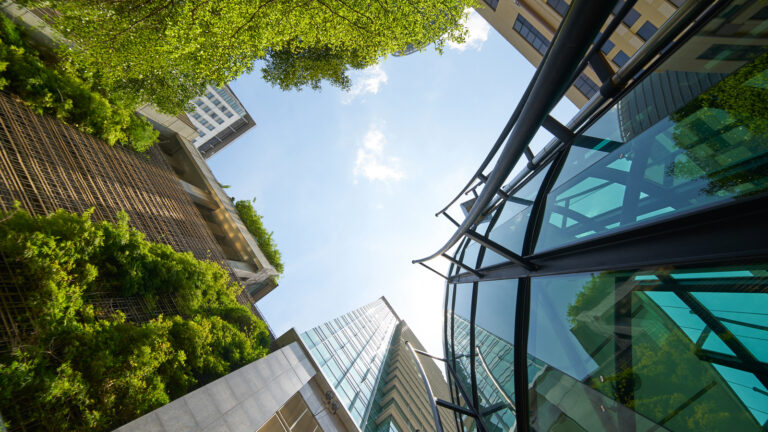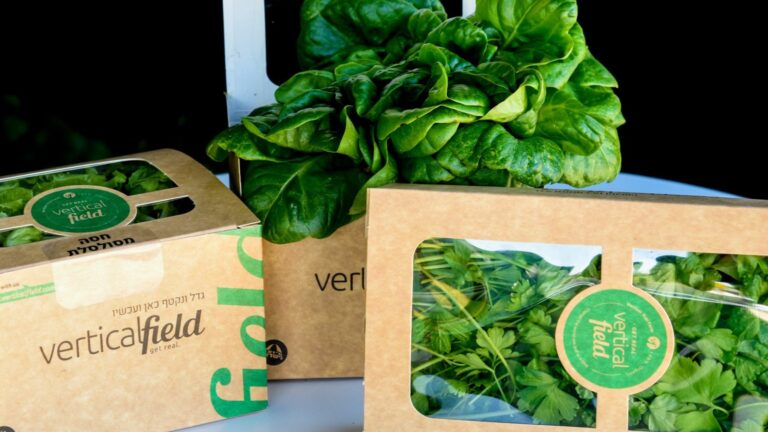Want to insulate your office from the heat and cold outside, while purifying the air inside from potential toxins? Israeli startup Vertical Field is accomplishing that with sensor-controlled indoor and outdoor “green walls” installed by the likes of clients such as the Israeli offices of Google, Apple, Intel and Facebook.
Indoor air pollution is an invisible but serious problem. High levels of carbon dioxide (CO2) in offices, classrooms, homes, trains and planes could be affecting our cognitive performance and in more severe cases may trigger inflammation or even kidney calcification and bone demineralization, according to a recent study published in Nature Sustainability.
A solution to sick building syndrome
Guy Elitzur, Vertical Field’s CEO, tells ISRAEL21c that one solution to “sick building syndrome”is to bring healthy and natural elements inside.
Plants work their magic by transforming carbon dioxide (CO2) into oxygen via photosynthesis. Installing a Vertical Field living biofilter in your home or office can remove about 95 percent of the pollutants in a building, the company claims.
Vertical Field’s green walls are not static. Sophisticated sensors measure fluctuating air quality in the building, while cameras track how many people are in a roombumping up the amount of CO2.
When the CO2 level goes above a certain threshold, Vertical Field can “manipulate the plants in an active way,” Elitzur says, by adding precise amounts of water, fertilizer and other nutrients through drip irrigation into the planters’ soil in order to increase absorption of CO2 and other allergens.
The result is “a wall that reacts to the indoor environment,” Elitzur explains. “It’s not just for beauty” — although a vertical wall of plants is that, too.
A typical Vertical Field installation contains between five and 15 types of plants. Software and big data drive the system’s customization.
“We have a characterization for each type of plant – its soil needs, the vitamins it requires to be more efficient, plus data coming from outdoors,” Elitzur notes. “This creates the best growing program for each specific plant.”
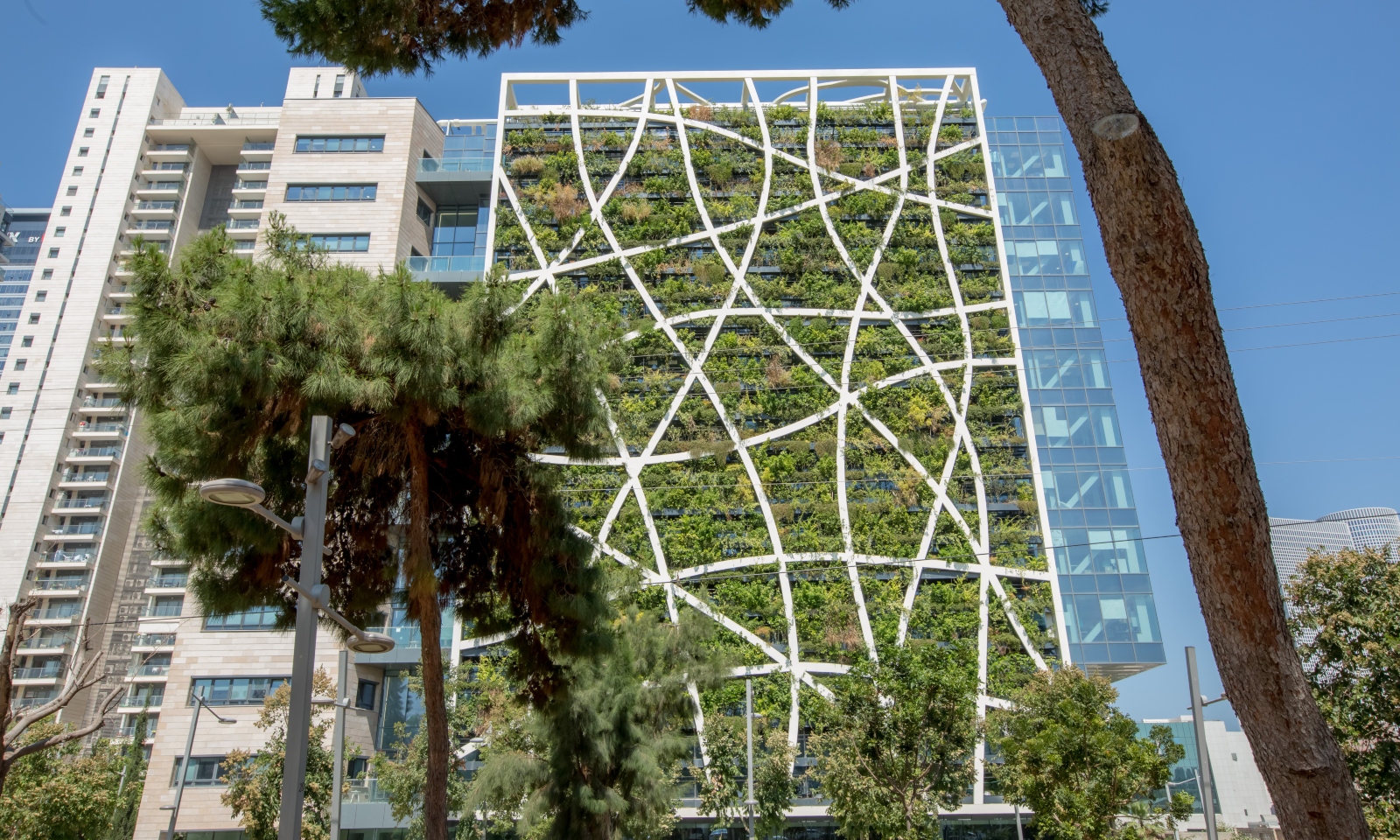
Vertical Field also installs “vertical forests” on the exterior of buildings. Israeli cybersecurity leader Check Point, for example, has a green wall outside floors 12 to 15 of its Tel Aviv offices.
Elitzur says the vertical forest creates an ecological shell that protects the building against direct radiation from the sun and enables a more stable internal temperature with less artificial cooling.
The cost for installing a vertical green wall starts “from a couple of thousand shekels per square meter,” Elitzur tells ISRAEL21c. The outdoor ones “are less sophisticated so they cost a bit less.”
Urban farming
Purifying air and insulating buildings is only part of the Vertical Field story. The company also specializes in urban farming: a green wall growing lettuce and other leafy greens.
One such customer isTel Aviv chef restaurant L28, whichgrows organic pesticide-free vegetables in a vertical farm on the building’s roof.
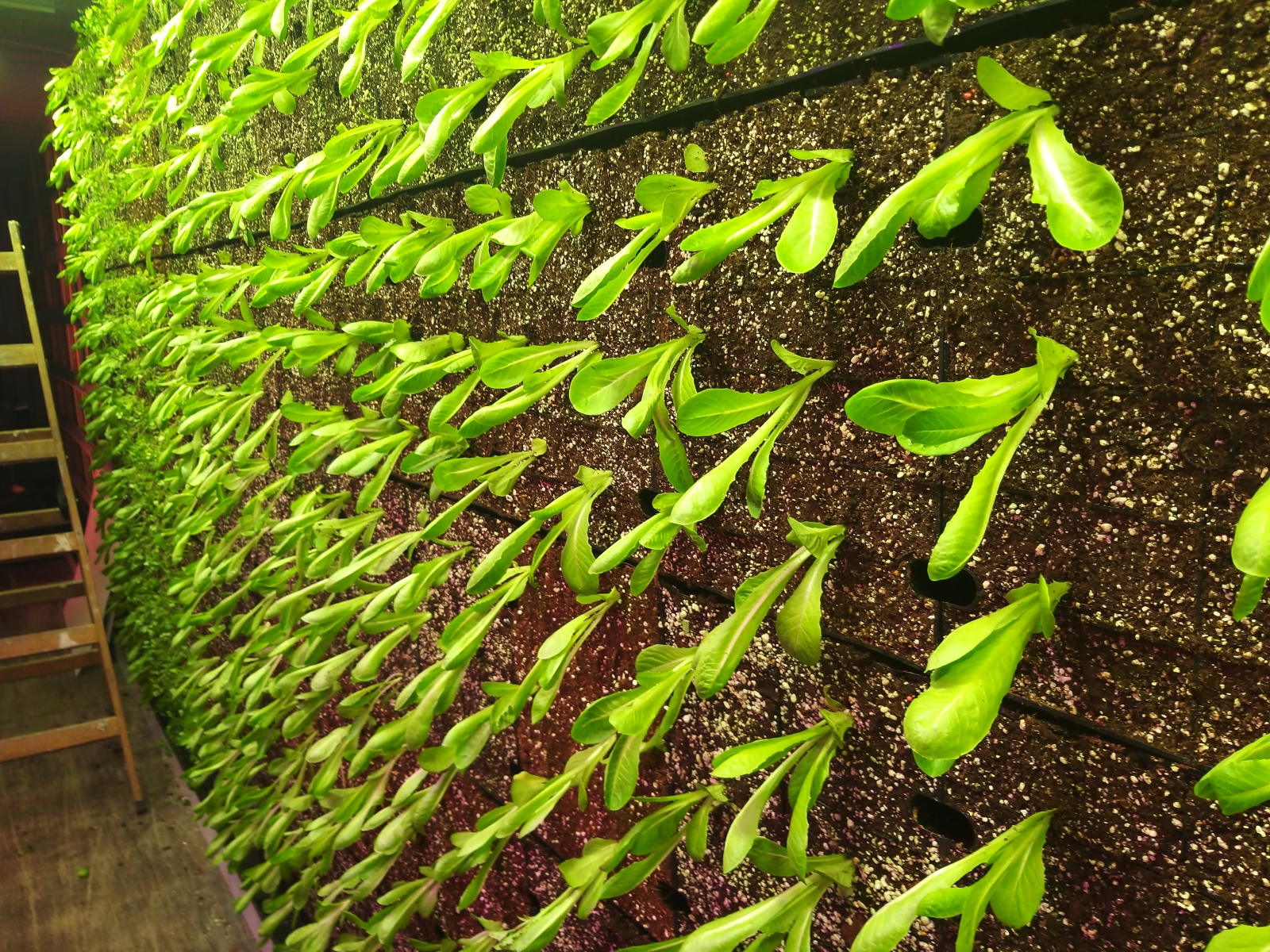
In New York, Vertical Field has a project installed “in a shipping container in the parking lot of a hotel and another one at a senior living facility,” Elitzur says. In the latter, the seniors take an active part in planting and harvesting.
Farming on the roof of a supermarket
An urban farm on the roof of a supermarket could provide the store’s customers fresher produce with no carbon footprint since the vegetables do not have to be trucked in from a far-off farm.
“The technology we’re creating can help bridge the way we live today with the complexity of nature,” Elitzur says.
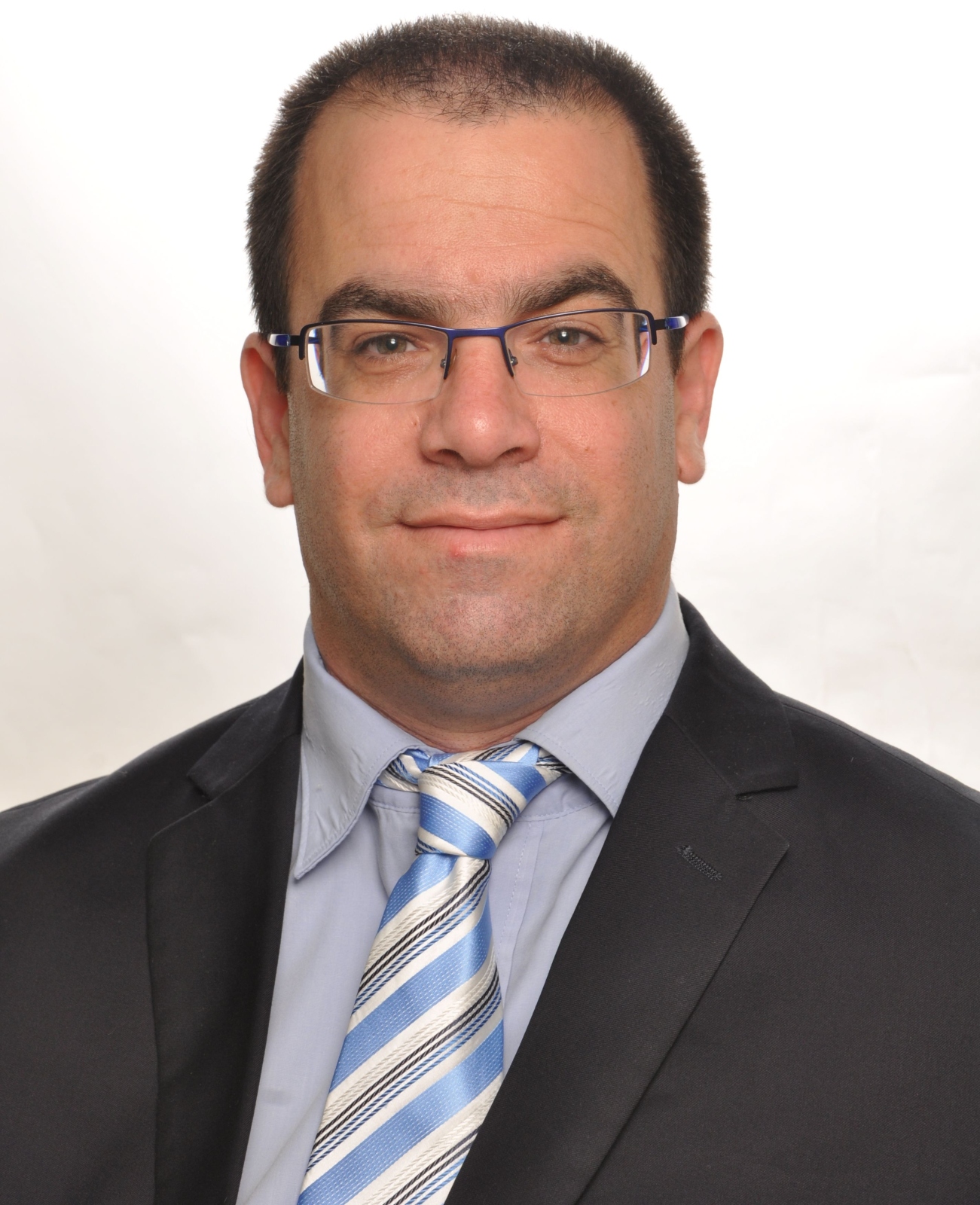
Vertical Field was founded in 2006 by Guy Barness. Guy no. 2 (Elitzur) came to Vertical Field fromSTK Bio Ag Technology, a startup that has developed eco-friendly biological pesticides.
“It was the same concept of doing something better for the globe and lowering the chemical footprint,” Elitzur says.
Vertical Field already has hundreds of projects, mainly in Israel through its Israeli subsidiary, Green Wall. Vertical Field is the entity that’s expanding beyond the Middle East, with the United States as its first target market.
While Vertical Field is focused on corporate clients, it can install a green wall in a private home thanks to a cadre of trained subcontractors, Elitzur says.
Vertical Field is not alone in offering vertical farming and green walls. Other companies include Germany-based InFarm, Freight Farm (which specializes in container farming) and Florida-based Live Wall and GSky. The latter is the biggest of the bunch with more than 800 green walls installed in 19 countries.
We asked Elitzur what makes Vertical Field different.
“All of us are great,” he says. “But we’re the only ones using soil to grow. Most of the others are based on hydroponics. Soil is a better way to grow plants. It provides a better ecosystem and is healthier. But there’s a place for everyone. We’re all serving a very good cause.”
For more information, click here




